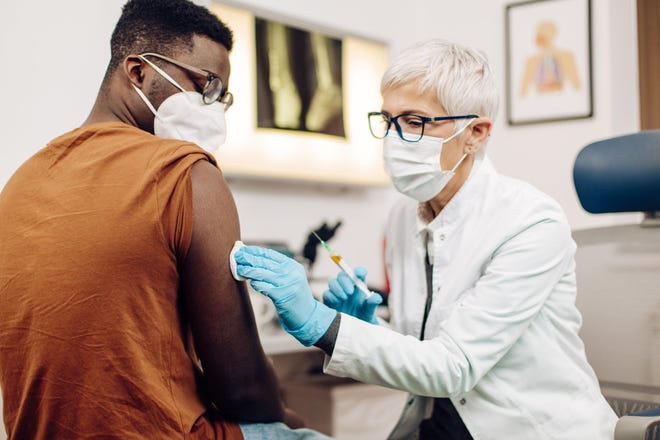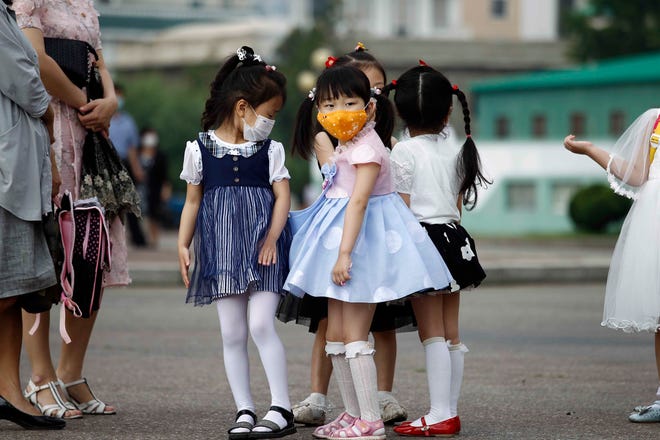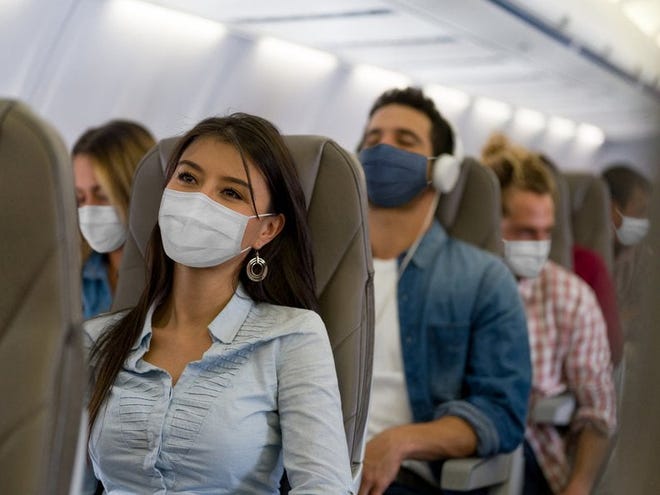In the USA, masks are becoming a far less common accessory under federal guidance that once a person is vaccinated, they’re largely unnecessary.
But the World Health Organization recommended that even vaccinated people continue to wear masks, and Los Angeles health officials recommended this week that all people – vaccinated or not – should wear them inside because of concerns about the delta coronavirus variant.
So who’s right?
It depends on individual circumstances, experts told USA TODAY.
A vaccinated person who isn’t immunocompromised is safe going without a mask in the USA, said Dr. Eric Topol, founder and director of the Scripps Research Translational Institute in La Jolla, California.
Vaccines available here are effective against known variants, including the delta, said Dr. Monica Gandhi, an infectious disease epidemiologist at the University of California, San Francisco.
The Centers for Disease Control and Prevention said vaccinated people need not mask except when on airplanes, buses or mass transit or in medical settings. Gandhi said that guidance “should not change and is unlikely to change in this country where our cases are still on the decline.”
The World Health Organization made a different decision, because its audience is different, she said. It makes recommendations for a planet where less than 10% of the population in many countries has had a single shot.

“Therefore, the WHO is making recommendations for places with high rates of community transmission with such low percentages of the population vaccinated that the vaccinated are more likely to encounter virus and have a breakthrough infection,” she said. In some countries, the available vaccines may not be as effective as ones here.
“Here in the United States, we’re fortunate. We have three vaccines that we know are safe and effective. We have two-thirds of the adult population that is fully vaccinated and really quite protected from the variants that we have circulating here,” CDC Director Rochelle Walensky said Wednesday morning on NBC News’ Today show.

There may be contexts in which local officials need to make decisions different from national ones, she said.
“There are areas of this country where about a third of people are vaccinated. They have low vaccination rates. And there are areas that have more disease,” Walensky said, so it may make sense to have different policies.
She added, “Those masking policies are not to protect the vaccinated, they’re to protect the unvaccinated.”
In Los Angeles County, officials recommended that people mask even after getting their shots, out of concern for the fast-spreading delta variant, which accounts for half the cases there.
“Until we better understand how and to who the delta variant is spreading, everyone should focus on maximum protection,” the Los Angeles County of Department Public Health said Monday.

An unvaccinated person is at a higher risk for catching COVID-19 anywhere, but particularly in an environment where infection rates are high, Topol said.
Vaccine effectiveness against hospitalization with delta was similar to that seen with alpha, Gandhi said: 94% after the first dose and 96% after the second with the Pfizer-BioNTech vaccine, which is nearly identical to Moderna’s. The Johnson & Johnson vaccine also is quite effective.
“We have every reason to believe … J&J will perform against the delta variant,” Walensky said.
Virtually everyone now hospitalized with COVID-19 in the USA has not been vaccinated.
In a study released Tuesday by the Epic Health Research Network, of more than 8.6 million vaccinated people, 4,260 – or .049% – became infected with COVID-19 and 1,594 were hospitalized with the virus.
Vaccines are “brilliantly successful” at preventing hospitalization, but they’re not as perfect at preventing disease transmission, said Dr. William Schaffner, an infectious disease expert at the Vanderbilt University School of Medicine in Nashville, Tennessee.
People who are vaccinated have a low risk of getting sick themselves and can cut down on the risk of transmitting the virus to someone else by wearing a mask.
“I think that’s what LA and WHO are focused on” by recommending mask-wearing, Schaffner said, particularly in light of the delta variant, which is more contagious than other variants.
The USA is not in enough of a crisis situation for the CDC to recommend the entire country mask up again, he said.
“They’re trying to keep society functioning and don’t want revolts,” he said.
It may be ironic, he admitted, but most of the people still wearing masks have been vaccinated – like him.
“I don’t think there’s anything oppressive about wearing a mask,” said Schaffner, who wears one routinely as a doctor, but he sees that some people are deeply uncomfortable with them.
Schaffner said he will continue to wear a mask in public and avoid large events as a “belt and suspenders” approach to further reducing his own risk of infection and transmission.
Contact Karen Weintraub at kweintraub@usatoday.com.
Health and patient safety coverage at USA TODAY is made possible in part by a grant from the Masimo Foundation for Ethics, Innovation and Competition in Healthcare. The Masimo Foundation does not provide editorial input.